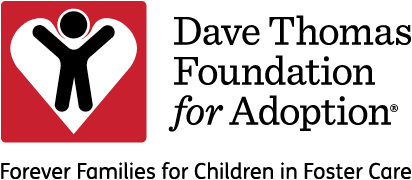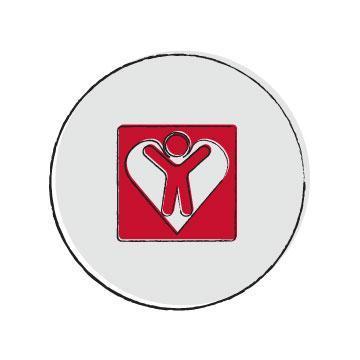A Step-by-Step Guide to Post Adoption
Adopting a child can be the most rewarding and joyful event of your life. But your adoption journey doesn’t end at finalization. It can bring a unique set of challenges and questions. This guide offers an overview of post-adoption resources to help your child and family thrive … together.
“It is critical for adoptive families to understand that the process does not end at finalization. Finding and using post-adoption resources can allow you to share the joys and address the challenges of adoption. We encourage you to take advantage of every resource at your disposal and connect, when possible, with other adoptive families.”
— Rita L. Soronen, President & CEO, Dave Thomas Foundation for Adoption
EVERY FAMILY WHO ADOPTS DESERVES THE CHANCE TO SUCCEED.
How do I prepare for a successful adoption?
Take steps to prepare for your child even before the adoption is finalized:
1. Get informed.
- Find out as much as possible about your child’s history and physical, mental and behavioral health. The law allows for full disclosure of information to the adoptive parent(s). Ask your pediatrician or family physician to review your child’s medical records to help you prepare for your child’s needs. The American Academy of Pediatrics offers a directory of physicians with experience treating adopted children.
- Consider engaging licensed counselors or therapists who understand the needs of adopted children and their families. These mental health professionals can help address issues like trauma, attachment, loss and grief, and for some children, the effects of abuse and neglect. Visit nctsn.org for free resources about child traumatic stress.
- Talk with your insurance company about how and when you can add your adopted child to your plan. Find out what their Medicaid coverage will be. Explore post-permanency resources for children with special needs at childwelfare.gov.
- Ask your child’s school for an evaluation and assessment of their learning needs, including if they should have an individualized education plan (IEP). U.S. federal law requires the public education system to accommodate all children and their individual needs.
- Research options for child care, including respite care available to foster, kinship and adoptive families in need of temporary support. Learn more at childwelfare.gov.
2. Get connected.
- Engage with adoptive parents in your community or in peer groups online for additional resources and support. This can be especially valuable for families of color, LGBTQ+ parents and children and others who have been historically oppressed. Ask your adoption agency or adoption professional for recommendations.
- Follow adoption-related blogs, podcasts, social media accounts, newsletters and other channels for helpful information.
3. Get financial support.
- Negotiate an adoption subsidy. If you are adopting a child with special needs from a public or private agency, you may receive federal or state benefits. You must negotiate the subsidy before the adoption is finalized.
- Secure financial aid for college. If your child was adopted from foster care in the U.S. after their 13th birthday, they can complete a Free Application for Federal Student Aid (FAFSA) form as an independent student so that parental income will not be a factor in eligibility for assistance (Public Law 110-84). Scholarships are also available.
- Ask your employer if they offer adoption benefits, such as financial reimbursement or paid leave. The Foundation provides a free Adoption-Friendly Workplace toolkit for employers, including sample policies.
- Contact your tax advisor about state and federal adoption tax credits and exclusions.
- View the Foundation’s Financial Resources for Adoptive Families page for more information.
What post-adoption services are available for my family?
From mental health services and specialized educational support, to financial assistance and scholarships, a wide range of post-adoption resources are available for families. For more information, check out these organizations:
- Adoption Learning Partners
- AdoptUSKids
- American Academy of Pediatrics
- ARCH National Respite Network
- Center for Adoption Support and Education (C.A.S.E.)
- Family Equality
- Families Rising
- Jockey Being Family Foundation
- National Child Traumatic Stress Network
- Paths for Families
- The Trevor Project
- U.S. Department of Health and Human Services Child Welfare Information Gateway
Referrals from other parents who have adopted and local support groups are often the most valuable source for reliable information. The services you need will depend on your child and your circumstances. You may also:
- Ask your adoption agency, adoption professional or medical provider for recommendations.
- Search national and regional post-adoption provider listings. See the Recommended Resources section in the Guide to Post Adoption for the most comprehensive list.
- Ask your employer about resources for employees who adopt, such as workplace support groups or online networks for adoptive parents. Many provide adoption support through their employee assistance program (EAP).
What should I expect after the adoption?
Adoption is a significant and emotional event for the child. Experiencing feelings of loss and developmental learning delays are all common. Adjusting to a new environment or culture is often difficult as well.
Understand that it’s normal to have challenges along the way, even years after the adoption. Life events and natural developmental stages can sometimes trigger new issues for a child who is adopted.
Most importantly, adopted children need the permanence of a forever family and your unconditional love.
Strengthen Your Forever Family
Download Our GuideAdoption Guide
Whether you are an adoption professional, a prospective adoptive parent or someone simply interested in learning more about the process, Finding Forever Families: A Step-by-Step Guide to Adoption offers valuable information and resources to help you make a difference in the life of a child.
ADOPTION BENEFITS
The Foundation provides a free Adoption-Friendly WorkplaceTM toolkit for employers that includes a fact sheet, sample benefits policy and other resources.



